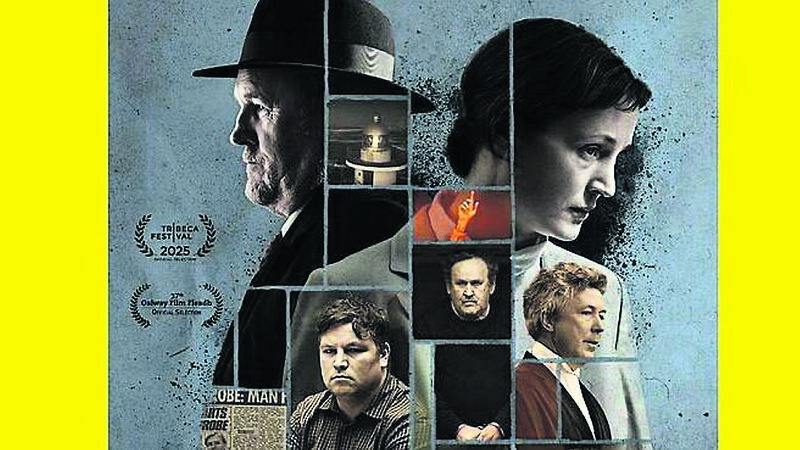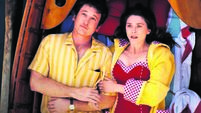Film review: A fresh take on murder that captivated a nation

It is a story that has fascinated people from day one: how a French woman travelled to her holiday home alone at Christmas to do a repair job at the cottage, only to be found dead, a rock the only murder weapon left at the scene.
Theories have multiplied over the years, and one chief suspect has stood out, Ian Bailey, a man who courted the limelight, allegedly made references to killing Toscan du Plantier, yet not one piece of evidence showed him to be near her that night.
While the Irish legal system found no reason to prosecute Bailey, the French tried him and found him guilty in absentia.
Many believe that Bailey, who died last year, is guilty, but there are also those who supported his claims of innocence.
Among his strongest supporters is the award-winning director Jim Sheridan, whose latest film, written and directed with David Merriman, , aims to prove that the Englishman is innocent.
The film is a fictionalised account that imagines what would have happened if Bailey had gone on trial for murder. Bailey is played by Colm Meaney, but we never hear him speak. The film opens with the prosecuting barrister, played by Aidan Gillen, giving his closing statement before the jury adjourns to deliberate.
The film, inspired by Sidney Lumet’s iconic courtroom drama , is mainly set in the jury room, where 11 of the 12 jurors are ready to find Bailey guilty.
Juror Number Eight, played by the excellent Vicky Krieps, is the only member of the group to believe that Bailey is innocent. She cannot explain why at first but says she has a feeling that he didn’t do it.
The loudest and most overbearing member of the jury, Number Three, played by John Connors, is quick to point out that feelings don’t equal facts. Number Three hates all forms of violence towards women and sees red when he is reminded of Bailey’s actions towards his former partner, Jules Thomas.
Sheridan and Merriman do not shy away from reminding us that Bailey was a domestically violent person, but just because he hit women doesn’t necessarily mean he was a murderer.
As Juror Eight begins to explain her reasoning, the other jurors start to waver.
Sheridan plays Juror One, the jury foreman who guides the jury as they go over the evidence. It is a clever device; no-one knows this case better than Sheridan, and as much of the film is improvised, he can guide the actors and their actions as much as Juror One guides his fellow jurors.
The jury, along with the audience, is presented with new evidence, including a new pathology report. We are led to question the statements made by the witness, Marie Farrell, as well as ponder whether the Garda investigation was carried out correctly, and if media interference may have led to some of Bailey’s questionable comments and actions in the aftermath of the murder.
We also travel with the jury as they do a field trip to West Cork and recreate Toscan du Plantier’s last moments in her home before her murder. As ideas coalesce, more jurors begin to doubt Bailey’s guilt.
Following the film screening, a pre-recorded interview, , will take place, featuring directors Sheridan and Merriman, hosted by Jennifer Forde from the well-known .
The idea of presenting the real story in this fictionalised manner is refreshing. After 30 years, the case still holds considerable interest, but for many, the fact that it involved a real woman has been overshadowed by sensationalism and curiosity.
Allowing the jurors to connect with the case and share their personal stories helps bring back the truth of this case: Sophie Toscan du Plantier was a real person. She had a son, a career, a husband, parents, friends, and siblings, and she was murdered before her 40th birthday.
While the improvisation goes a little over the top at times, and the overall structure falters on occasion, there is no denying that there are great performances, particularly from Krieps, who brings raw emotion to the role. The film has great moments but is overly uneven; its triumph, however, is humanising Sophie Toscan du Plantier once again, and that is more important than any star rating could be.
, in cinemas, Oct 3, cert 15a, ***







